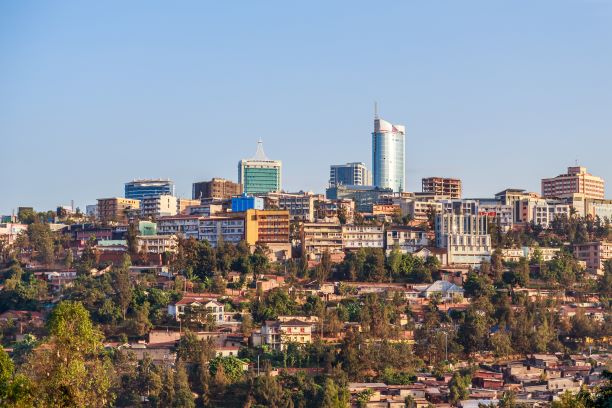In the context of Black Lives Matter, decolonisation movements and the threat to international aid in the recent DFID / FCO merger, the time is now for “development” to change.
The threats to the development project appear to stem from a failure to win over the public, a failure to align with contemporary politics, and an enduring paternalistic tendency that puts off the young generation who are more concerned about justice than charity.
This is the second of a three-part blog series exploring some of these issues through the theory of “post-development”. Each blog unpacks contemporary debates and attempts to make sense of them, before offering some reflections about how our practice and our ideas of development need to change. Read the first blog in this series here.
The series is based on the author’s 2019 PhD Scotland, Malawi and the Post-Development Critique.
Scotland & Malawi
Since 2005, Scotland and Malawi have been linked in a ‘special relationship’, formally beginning with the signing of a cooperation agreement that year between the then Scottish First Minister Jack McConnell and President of Malawi, Bingu wa Mutharika. The beginning of this partnership saw the Scottish Executive creatively interpret the Scotland Act allowing them to create a modest budget for international development, an area of policy explicitly reserved for the UK Government. Around half of this has gone to Malawi since 2005, and despite this being a relatively small amount of government funding, the relationship between these countries has thrived.
This relationship is characterised by some as about mutuality, about two-way exchange, partnership, and a “people-to-people” approach to international development. It is said to be a “partnership of equals”, and the contemporary manifestation of a historical relationship that begin in the middle of the 19th century. When Scotland’s international development programme was created, it was said to “owe a legacy to David Livingstone” [1] and that it was simply re-igniting what he and the missionaries who followed him started in the 19th century.
The emphasis on mutuality is what led to the creation of the Malawi Scotland Partnership (MaSP) headquartered in Lilongwe, to be an equivalent and sister organisation of the Scotland Malawi Partnership (SMP) in Edinburgh. The emphasis on two-way exchange is exemplified by the multitude of community and educational links between the two countries, with hundreds of schools, churches, university groups and communities connecting annually. What MaSP and the SMP promote is a north-south relationship that is not totally defined by “development”, but rather is much more interpersonal and connected, through faith, history and interaction.
Colonial Origins
What this means is that the relationship between Scotland and Malawi is both presented as premised on equality and mutuality, whilst also having origins in colonial expeditions and missionary work. Can it be both? At once it both challenges established hierarchies which characterise north-south relations and celebrates an era of Scottish history that is arguably at the root of the very same hierarchies it purports to resist.
The relationship between Scotland and Malawi is often referred to as a “150-year-old friendship”, and the interactions between the two countries characterised as a “two-way partnership”. This can be very unhelpful, if used to portray the whole 150 odd years of interaction as a “two-way friendship”, when the vast majority of those years were characterised by colonial exploitation. Referring to the relationship between a former coloniser and colony as one of “friendship” or “collaborative development” is deeply problematic, ahistorical and dangerous. It can undermine Scotland’s complicity in empire and rob current generations of an understanding of what the “development” project ought to be about – reparations.
And yet, whilst the colonial origins of the Scotland Malawi relationship ought not to be uncritically celebrated (and must be actively redressed), the effort by the likes of MaSP and the SMP to push the boundaries of what normal north-south interaction looks like is very welcome and contemporary. These network organisations promote cultural exchange as an end in itself, they encourage a spirit of mutual respect and, in effect, challenge the “development” paradigm.
When these efforts fall short and are not successful, it is because this paradigm continues to simmer beneath the surface, shaping and corrupting efforts to establish genuine equality in a context that is defined by the history of colonialism, empire and inequitable economic development between the ‘Global North’ and ‘Global South’.
Critique of the Critique
An example of how colonial perspectives simmer beneath the surface can be found in the types of arguments that people use to critique the Scotland-Malawi relationship. In my research, many respondents critiqued what they perceived to be an “old-fashioned”, “colonial” and “hand-out” approach to development espoused in the Scottish Governments relationship with Malawi. Some respondents remarked that the Scottish Government approach was paternalistic, and that fundamentally this approach “does not work”. One suggested about Malawi that “the country hasn’t developed at all”, as evidence for the failure of the Scottish Government approach. Another suggested that “the hand-out approach” taken by Scottish Government had bred a culture in Malawi that “doesn’t encourage them to help themselves”.
The irony is that these critiques of the perceived coloniality of the Scottish approach is itself steeped in a colonial mindset. It exaggerates the role of Scotland in Malawian development, takes a narrow view of Malawian culture, and in turn effectively blames Malawians for a lack of development, completely ignoring the structural economic context in which Malawi is exists.
Where from Now?
The case of the Scotland Malawi relationship shows that exposing coloniality in development is not always one-way traffic. Some things which are problematic in one way, are challenging the dominant paradigms in other ways, and we must critique our own critiques to really understand how the legacy of colonialism shapes our way of seeing.
The next and final instalment of this 3 part series will consider how post-development can help understand north-south relations in the context of the climate emergency. Read the first blog here.
[1] Scottish Government, 2016b, pp. 14-15


